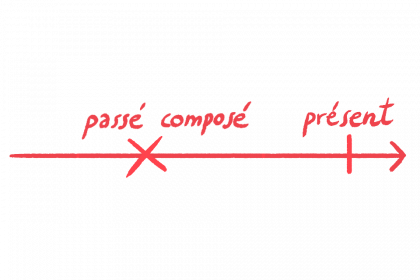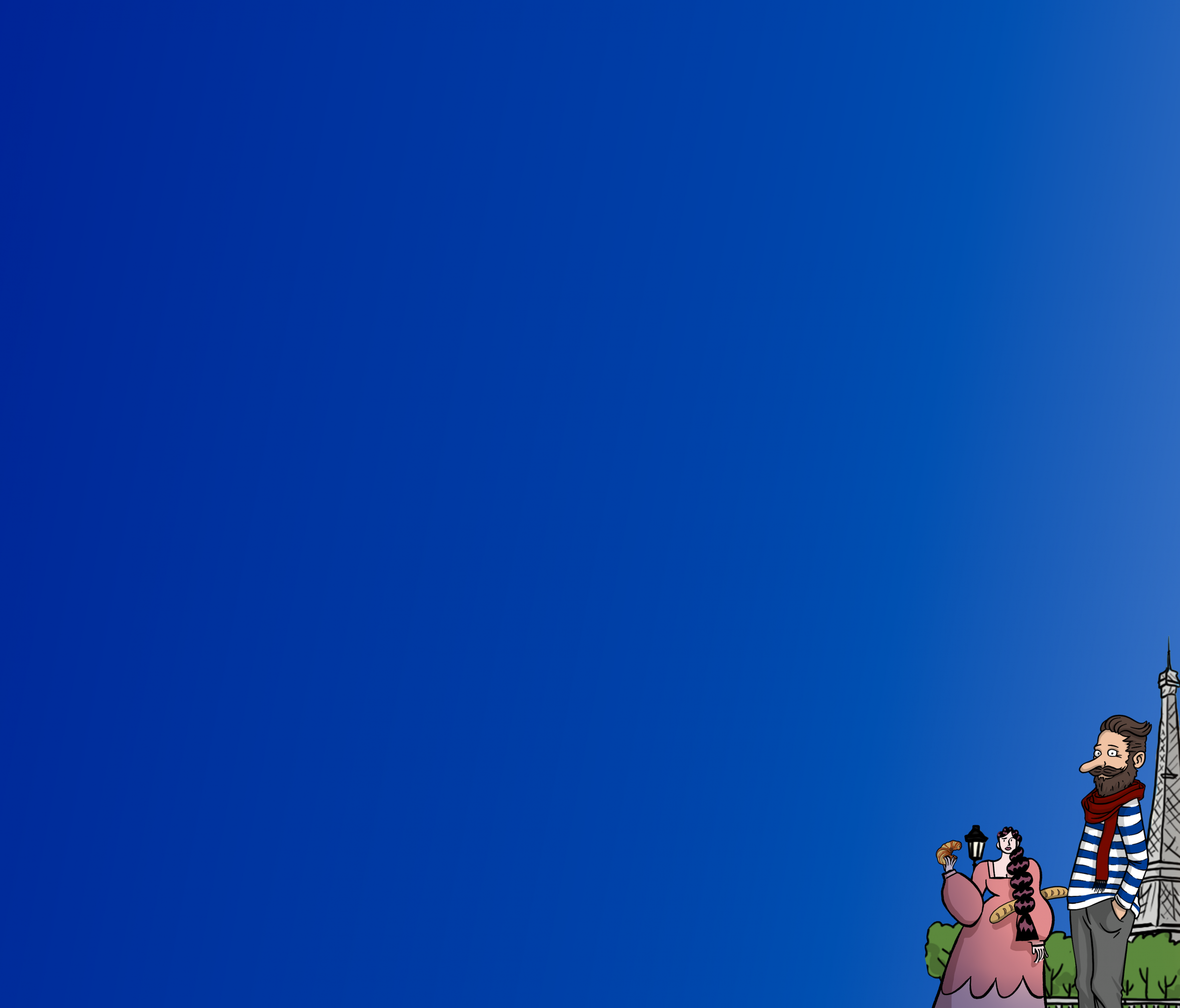Forming the perfect tense with avoir
We use the perfect tense (known as the passé composé in French) to describe past events or actions. It is used to say phrases like “I played” or “I ate” and also phrases like "I have played" or “I have eaten”.
Yesterday, I ate in a restaurant.
We form the perfect tense of most verbs using the present tense form of avoir avoir, présent + past participle of the main verb.
to like, to love → I liked, I loved
to give → you gave, you have given
The past participles of verbs that end in -er usually end in -é . The past participles of other verbs often end in -i or -u.
to finish → we finished, we have finished
to see → have you seen Sophie?, did you see Sophie?
The negative form of the perfect tense is constructed as follows: subject + n' + avoir (present tense) + pas + past participle.
Anna ate, Anna has eaten. → Anna did not eat, Anna has not eaten.
Note: We form the perfect tense of certain verbs, such as venir (to come), aller (to go), partir (to leave), etc., with the present tense form of être + past participle.
Roger went to Saint-Tropez.

Still having trouble with 'Forming the perfect tense with avoir'? Master the rules of French grammar and improve your French level thanks to our online French lessons Frantastique. We're offering a 7-day free trial, so what are you waiting for?
What our users say:
Looking to improve French for beginners? Frantastique provides effective and fun training!
Tips for learning 'Forming the perfect tense with avoir'? Share them with us!

